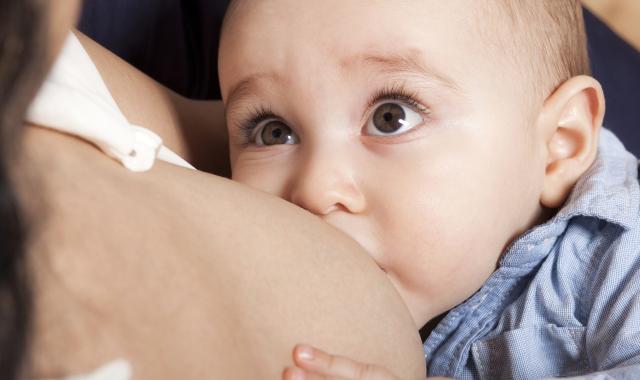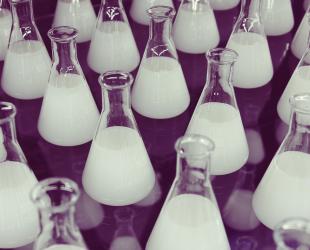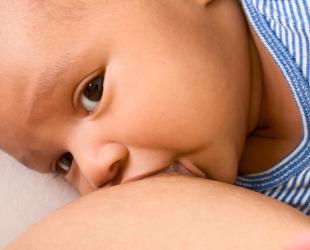Breastfed babies are less likely to get infections than formula-fed babies.

Breastfeeding helps support and develop your baby’s immune system
It is well known that breastfed babies are less likely to get infections than formula-fed babies. Breastmilk contains many factors that help support a baby’s immune system. When you breastfeed your baby, you pass on lots of proteins, fats, sugars and cells that work against infections. The cells include antibodies, white blood cells, lactoferrin, lysozyme, oligosaccharides, probiotics and prebiotics.
When you come into contact with germs in your environment, you make antibodies to fight those germs. These antibodies pass into your breastmilk and therefore on to your baby. Since you and your baby are generally in contact with the same germs, this helps protect your baby from the illnesses that you are both exposed to.
The main type of antibody in breastmilk is IgA. IgA antibodies protect the internal surfaces of the body, such as the mouth, stomach, intestines and lungs. These antibodies are not digested by the baby. Instead they coat the baby's gut and block the entry of infections that could otherwise cause illness.
In addition, there are a number of other factors in breastmilk that grant a breastfed baby a more efficient immune system. For example, breastfed babies develop a larger thymus gland than formula-fed babies. The thymus gland makes a type of white blood cell that helps protect against infections.
Breastfeeding and vaccinations
Vaccinations for mum
In general, if you are breastfeeding, it is safe for you to receive a vaccination should you need to get one. If you are unsure about a particular vaccine, talk with your health care provider. For more information view the Australian Immunisation Handbook and our information on the COVID-19 vaccine.
Vaccinations for baby
Vaccination recommendations are the same for breastfed or formula fed babies. For more information, see The Australian Immunisation Handbook.
The ABA’s Position Statement on Breastfeeding states: 'Breastfeeding alone does not provide sufficient immunity to childhood diseases and parents need to seek appropriate guidance on immunisation from their medical advisers’.
Although breastfeeding often reduces the severity of illness in a baby, it is not a substitute for immunisation. In other words, breastfeeding does not provide your baby with total immunity to vaccine-preventable diseases. Vaccines developed to fight severe, life-threatening diseases such as polio, diphtheria and measles provide additional protection.
Breastfeeding may also improve a baby’s response to some vaccines. Breastfed babies produce higher levels of antibodies in response to some vaccines than formula-fed babies.
Breastfeeding when baby receives vaccinations
Breastfeeding is known to be an effective way to distract babies from pain. You might like to breastfeed your baby while they receive any vaccinations to help your baby's perception of pain.
© Australian Breastfeeding Association May 2022



